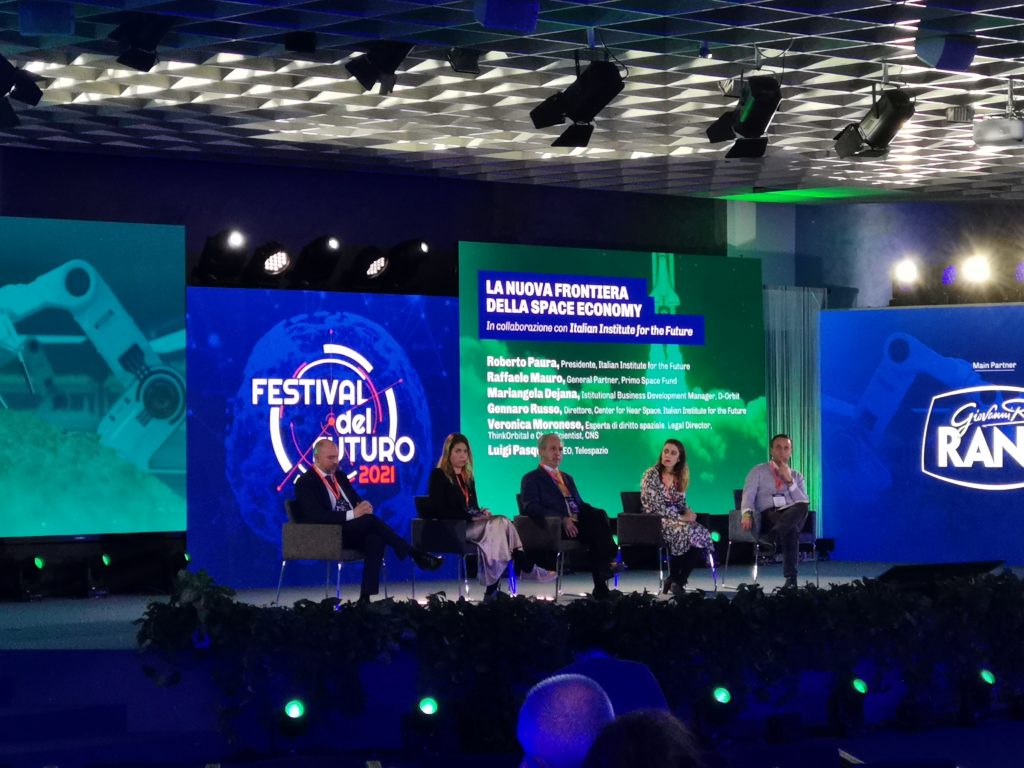
Quantum computing, deep tech, artificial intelligence: new technologies and the revolution taking place on a social and economic level were the common thread of the first morning of the Festival del Futuro, an event promoted by the Athesis Publishing Group, Harvard Business Review Italy and Business Excellence, now in its third edition. Among the protagonists Giovanni Rana jr. innovation and technology manager of the company of the same name, called on the stage to talk about the technological strategy that allowed the Rana pasta factory to exceed one billion in turnover in a few years, winning the IRI-BCG title for three consecutive years as the company with the highest growth rate on the American market. The day opened with greetings with speeches by Luigi Consiglio, president of Gea, the CEO of the Athesis Group Matteo Montan, of Enrico Sassoon, director in charge of HBR Italy, and then of the president of the Veneto Region Luca Zaia, of Federico Sboarina, mayor of Verona, of Maurizio Danish, president of Veronafiere and the president of Confindustria Verona Raffaele Boscaini.
The panels today
The first round table focused on the theme "The technological challenge: how to cope with the exponential pace of innovation": among the speakers Fabio Moioli, Microsoft's head of consulting and services, Hello Tomorrow chairman Massimo Portincaso, Anna Grassellino, director of National Quantum Information Science Research Center e Rosary Sica, CEO of Open Knowledge-Bip Group, coordinated by the chairman Umberto Bertelé, professor of the Polytechnic in Milan. A journey into the future, where quantum computers will allow us to do very advanced simulations and calculations in a very short time, bringing incredible advances in the fields of national security, finance, medicine, biology. A future where artificial intelligence will allow not only to carry out tasks and activities of the present more efficiently, but also to create new ones, as happened in the past with the introduction of electricity, which completely revolutionized the world of ' enterprise and society. The "deep tech" will allow to expand innovation exponentially, making a concrete contribution to solve the great social and environmental issues of our time, as well as to redefine the boundaries of business.
On stage he then went up Giovanni Rana jr, Innovation and Technology manager of the homonymous company. A billion in turnover, eight production plants in Italy, Belgium and the United States, a thousand recipes and over 4 thousand employees: the young Rana focused on the strategic role of innovation and technology that allowed the pasta factory to achieve these results. “Our company is and remains a family business in San Giovanni Lupatoto, but we managed to reach a billion in turnover by focusing on technological innovation even before marketing”, explained Rana. "In fact, in the company we have created and patented fundamental technologies that have given life to the new production lines and, from the point of view of the product, thanks to the house of innovation we work every day to create new references that can respond to tastes and needs. of customers from all over the world ".
During the third panel George Put, scientific director of the Italian Institute of Technology, Joseph Paws, president of Ansaldo Energia, Alexander Perego, director of the Management Engineering department of the Politecnico di Milano, Iain Mattaj, director of Human Technopole ed Ernesto Ciorra, Chief Innovability Officer of the Enel Group, discussed the possibility for Italy to become a technological leader, the conditions necessary to achieve this goal, the obstacles to overcome and the opportunities to be seized. One emerged chiaroscuro portrait. Italy is a country already at the forefront in some sectors, those that traditionally are the prerogative of made in Italy but which are now mature, while struggling to establish itself in other more innovative areas. A series of constraints make this leap difficult: reduced investments in risk capital, an institutional and bureaucratic context that is not very flexible, unable to adapt rapidly to the evolution of society, widespread but not yet adequate digital infrastructures and human capital not sufficiently prepared on a scientific and technological level. The only strategy, as emerged, is to seize this particular historical moment to carry out structural reforms and make long-term investments in support of innovation.
How to follow the Festival of the Future
To follow the Festival and Future Arena in person, you need to register on our site. The works can also be followed in streaming on L'Arena, Bresciaoggi, Il Giornale di Vicenza, Ansa and Futura Network.






